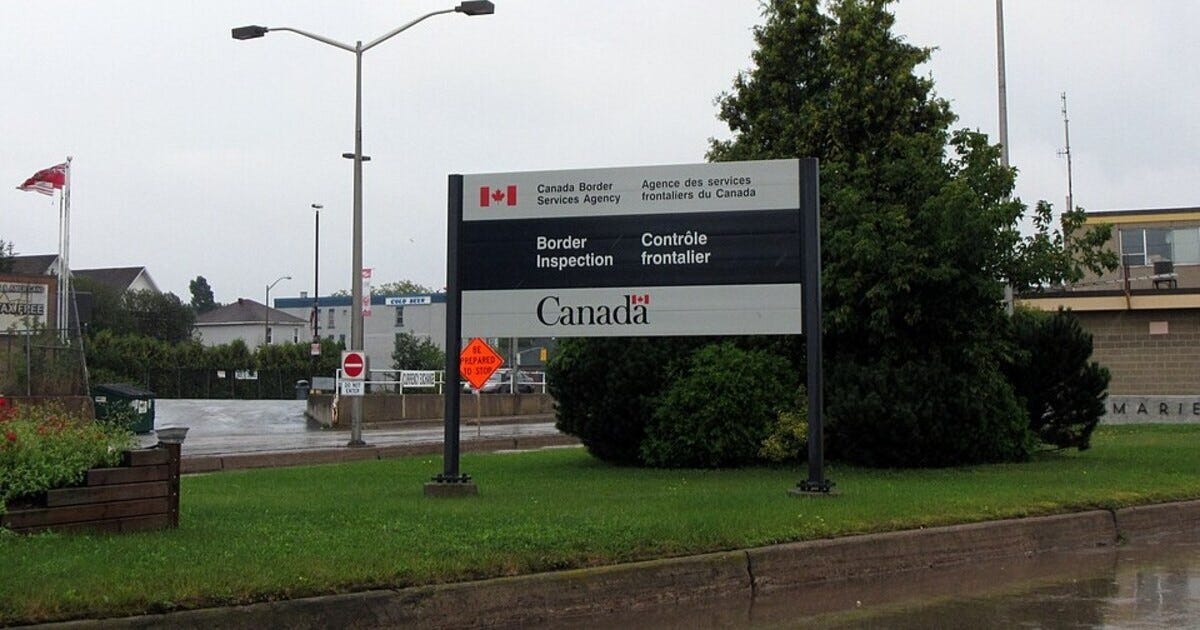Poorly managed border will “end” Canada: expert witness
Christian Leuprecht, a professor at the Royal Military College of Canada, warned that Canada risks damaging its relationship with allies, potentially leading to the country’s demise.
Christian Leuprecht, a professor at the Royal Military College of Canada, warned that without border security reforms to address evolving international security threats, Canada risks damaging its relationship with allies, potentially leading to the country’s demise.
During a House of Commons security committee meeting, Leuprecht advocated for reforms to Canada’s border security approach, recommending a single government agency to manage the border instead of multiple institutions.
He stated that both current and previous U.S. administrations and Congress have “repeatedly made clear” their perception that Canada is “no longer living up to its end of the bargain” in managing the shared Canada-U.S. border.
“Specifically, they are concerned that Canada has become a high-value, low-risk backdoor to the United States, whose proliferating legislative and structural weaknesses are being exploited by powerful and dedicated state and non-state actors to undermine the social fabric, economic prosperity and territorial integrity of the United States,” Leuprecht said in his opening remarks to the committee.
Leuprecht highlighted Canada’s lack of “exit controls” for what leaves the country, contributing to a bolstered domestic auto-theft market and weakened ties with countries receiving black-market exports from Canada.
He argued that Canada’s “territorial thinking” regarding border security is outdated, as modern threats are increasingly transnational and include cyber crimes and terrorism.
He emphasized the importance of maintaining the shared border with the U.S., not just for diplomatic reasons but because the U.S. represents the world’s largest drug and weapons market.
Leuprecht warned that an increased perception of the government having “lost control” of its borders will push more Canadians to support populist movements and “illiberal measures” inconsistent with Canada’s constitution.
Conservative MP Rhonda Kirkland questioned Leuprecht on why the federal government took “four years” to act on border security, given his view that Canada’s “failure to strengthen its borders” against organized crime and illegal immigration harmed Canada’s credibility with partners like the U.S.
Leuprecht stated that Canada’s trajectory on border security, immigration and crime will continue to erode its relationship with international partners, especially the U.S., and that lax security also negatively affects Canadians and Canada’s existence.
He noted human smuggling, weapons, illicit drugs, tobacco trafficking and monetary fraud all have direct and indirect impacts on the health and safety of Canadians and Canada’s credibility on the world stage.
He cited that in 2024, TD Bank, one of Canada’s two global financial institutions, pleaded guilty to money laundering in a case involving funds that financed fentanyl trafficking and terrorism.
“When we have a Canadian bank that is actively being accused and subsequently pleads guilty to effectively conspiring in fentanyl trafficking to undermine the US social fabric, and you’re wondering why we might have a trust, confidence and reputation problem with the United States,” Leuprecht said.
Kirkland asked Leuprecht about the “biggest breakdown points” for preventing fentanyl and its precursor drugs from “flowing through Canada ports right across the border.”
“What frustrates me is that we take apart super labs by the dozens in this country, and in many cases, not a single person gets charged. Our inability to go after the kingpins of transnational organized crime in this country shows that we are not postured and we are not structured to actually engage with these transnational threat vectors,” Leuprecht responded. “Simply adding a few people here and there, or tinkering with a little bit of legislation, will not fix the problem if we are not going to commit politically to restructuring the national security posture.”
He added that Canada is lagging behind allies in the United States, Australia, the United Kingdom and several European countries that have committed to tackling such transnational threats.
Also, during the committee meeting, Leuprecht said he believes Canada would benefit from a single border security agency rather than multiple police jurisdictions and government agencies collaborating on the same issue.
In response to recent Liberal government pledges to add 1,000 more RCMP and CBSA officers, Leuprecht said Canada would benefit more from intelligence gathering and tech operators thanfront-line enforcement. Officials have stated 800 of the 1,000 new CBSA employees will be trained as front-line officers.




